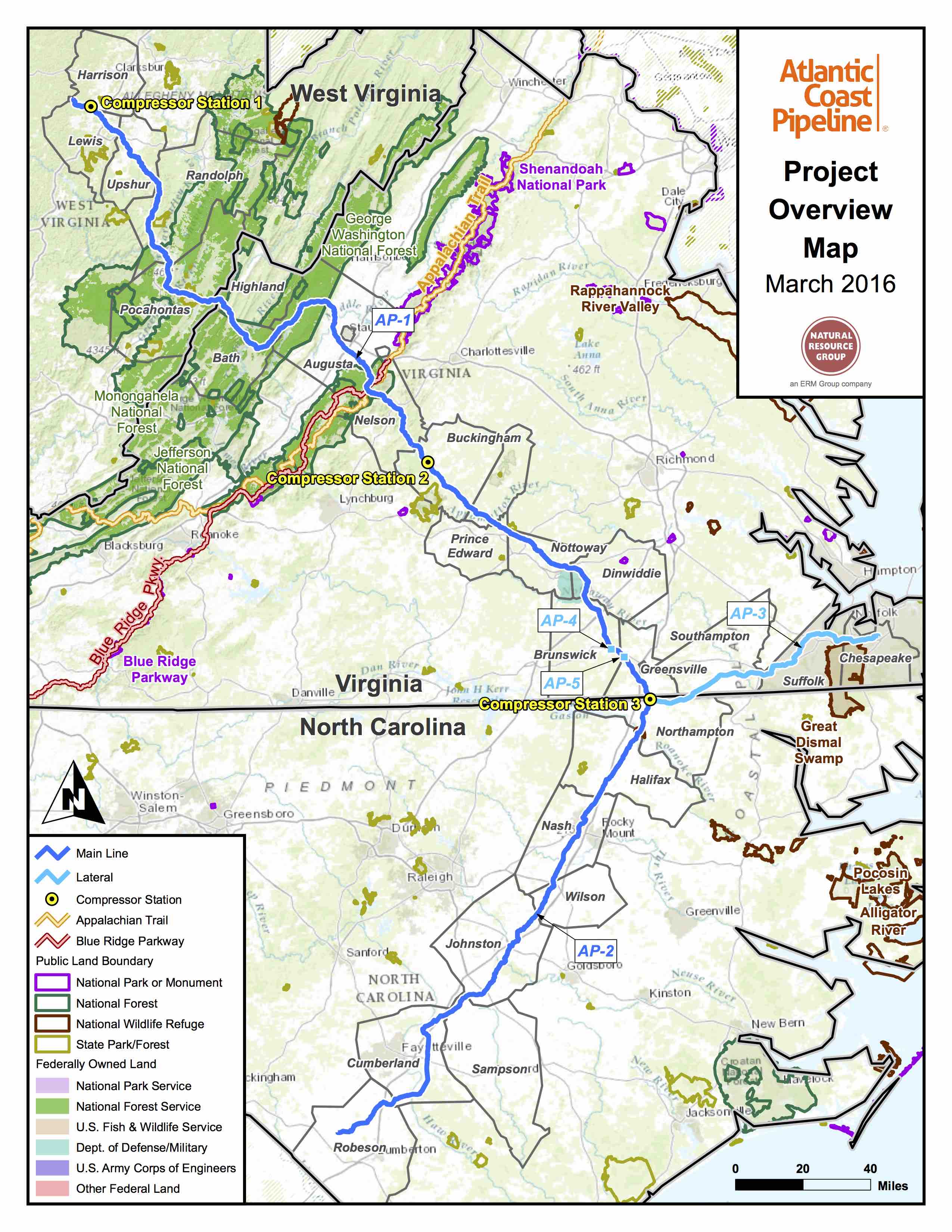Atlantic Coast Pipeline Construction Project Gets Favorable EIS

RICHMOND, Va. (AP) — A proposed natural gas pipeline that would cross West Virginia, Virginia and North Carolina would have adverse environmental impacts, but most could be avoided, minimized or mitigated, according to an analysis released Friday by federal regulators.
The Federal Energy Regulatory Commission’s more than 2,300-page draft environmental impact statement for the Atlantic Coast Pipeline outlines the potential effects of the project on vegetation and wildlife, water, public land and other resources. While the lead company behind the pipeline heralded the report’s findings, a number of groups that oppose the project said the commission hadn’t honestly assessed the impacts and had dismissed clean energy alternatives.
A statement posted along with the report on the commission’s website says “the majority of project effects, with the exception of impacts on forest vegetation, would be reduced to less-than-significant levels” as long as the companies building the pipeline follow a number of recommendations.
The report says that while most vegetation wouldn’t be seriously harmed, forested areas “would experience significant impacts.” Construction would remove the tree canopy in certain areas, which would change the forest structure, and regrowth could take years or decades, the report said. The project would also contribute to forest fragmentation and would have “long-term to permanent” impacts to about 33 acres in the Monongahela National Forest and 146 in the George Washington National Forest, it said.
Leslie Hartz, vice president of pipeline construction for Dominion Energy — which is partnering with other energy companies on the approximately 600-mile-long project — said the report was a major step forward.
“While we have to review the draft further, we believe it confirms that the project can be built in an environmentally responsible way that protects the public safety and natural resources of our region,” Hartz said in a statement.
Proponents have said the pipeline, which would carry fracked natural gas, will generate thousands of jobs, enrich local tax collections and attract businesses seeking relatively cheap natural gas. Hartz also said in her statement Friday that the pipeline is “critically important to meeting the growing energy needs of public utilities in Virginia and North Carolina.”
Some environmental and community groups in all three states, however, criticized the report’s findings and some said the energy companies behind the project haven’t done enough to show that the pipeline is necessary. Opponents have put up strong resistance to the project, saying it could decrease property values and disrupt historic and environmentally sensitive locations.
“Dominion’s Atlantic Coast pipeline will not only irreparably alter our natural terrain but it is also unnecessary. … This is a Dominion self-enrichment project, not a public necessity,” Greg Buppert, senior attorney for the Southern Environmental Law Center, said in a statement.
The commission, which has the final say on interstate pipelines, is accepting public comment on the draft report until April 6. After that, it will release a final environmental impact statement before issuing a decision on the project.
Related News
Related News

- Kinder Morgan Proposes 290-Mile Gas Pipeline Expansion Spanning Three States
- Enbridge Plans 86-Mile Pipeline Expansion, Bringing 850 Workers to Northern B.C.
- Intensity, Rainbow Energy to Build 344-Mile Gas Pipeline Across North Dakota
- Tallgrass to Build New Permian-to-Rockies Pipeline, Targets 2028 Startup with 2.4 Bcf Capacity
- U.S. Moves to Block Enterprise Products’ Exports to China Over Security Risk
- U.S. Pipeline Expansion to Add 99 Bcf/d, Mostly for LNG Export, Report Finds
- A Systematic Approach To Ensuring Pipeline Integrity
- US Poised to Become Net Exporter of Crude Oil in 2023
- EIG’s MidOcean Energy Acquires 20% Stake in Peru LNG, Including 254-Mile Pipeline
- Enbridge Sells $511 Million Stake in Westcoast Pipeline to Indigenous Alliance




Comments